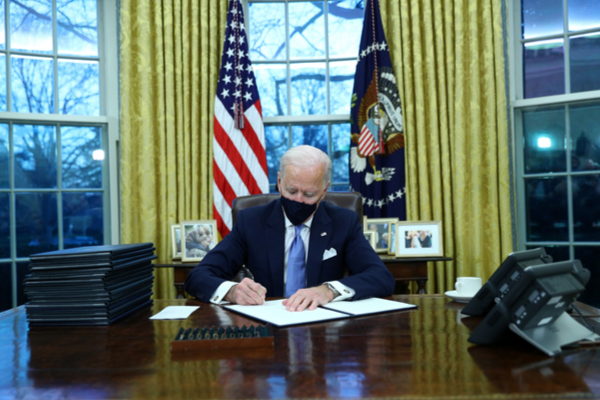Jan 20, 2021
On his first day as president, Joe Biden followed through on one of his pre-inaugural commitments: re-entering the United States into the Paris climate agreement.
Read the Full Article

Already a subscriber? Login

On his first day as president, Joe Biden followed through on one of his pre-inaugural commitments: re-entering the United States into the Paris climate agreement.
